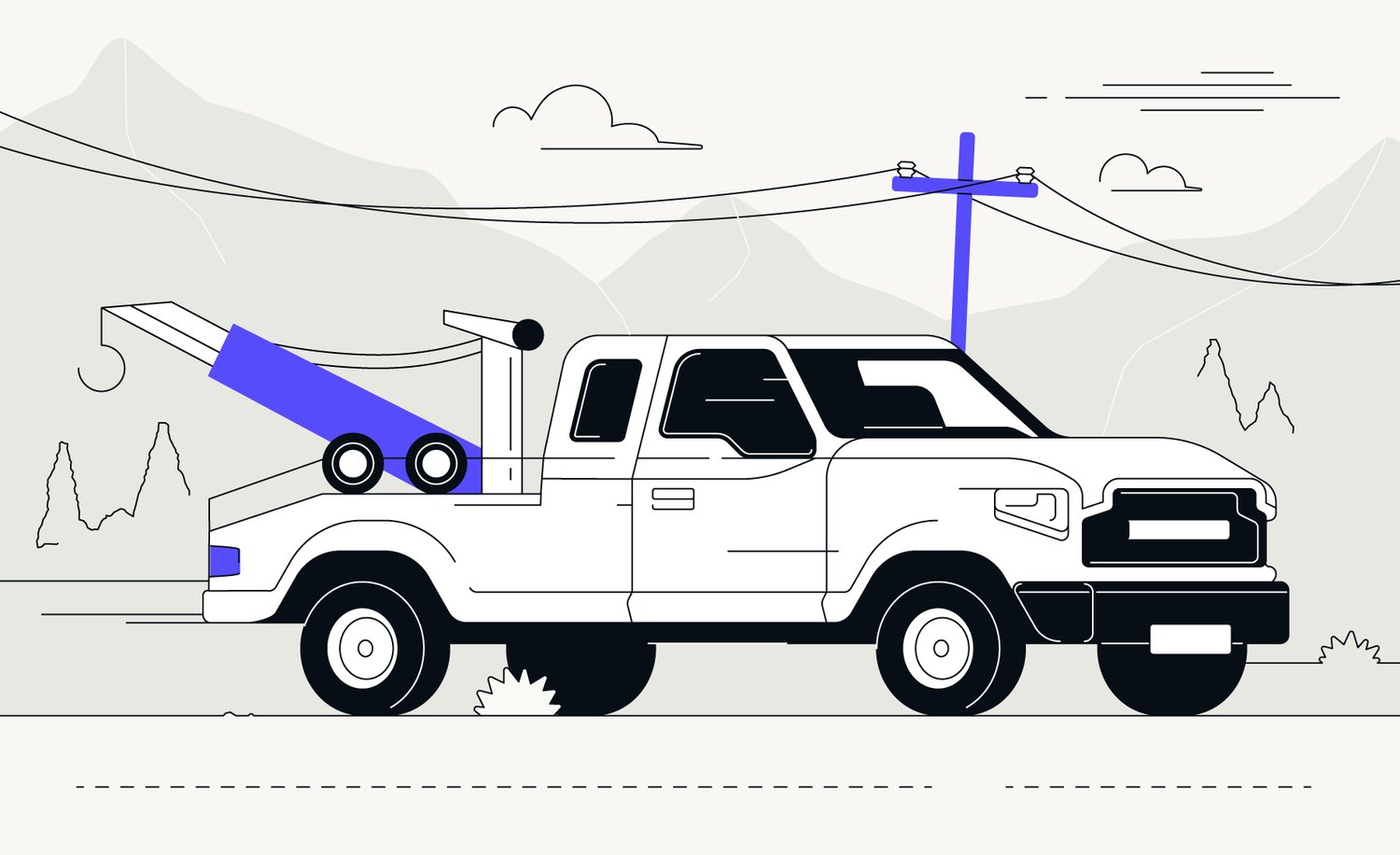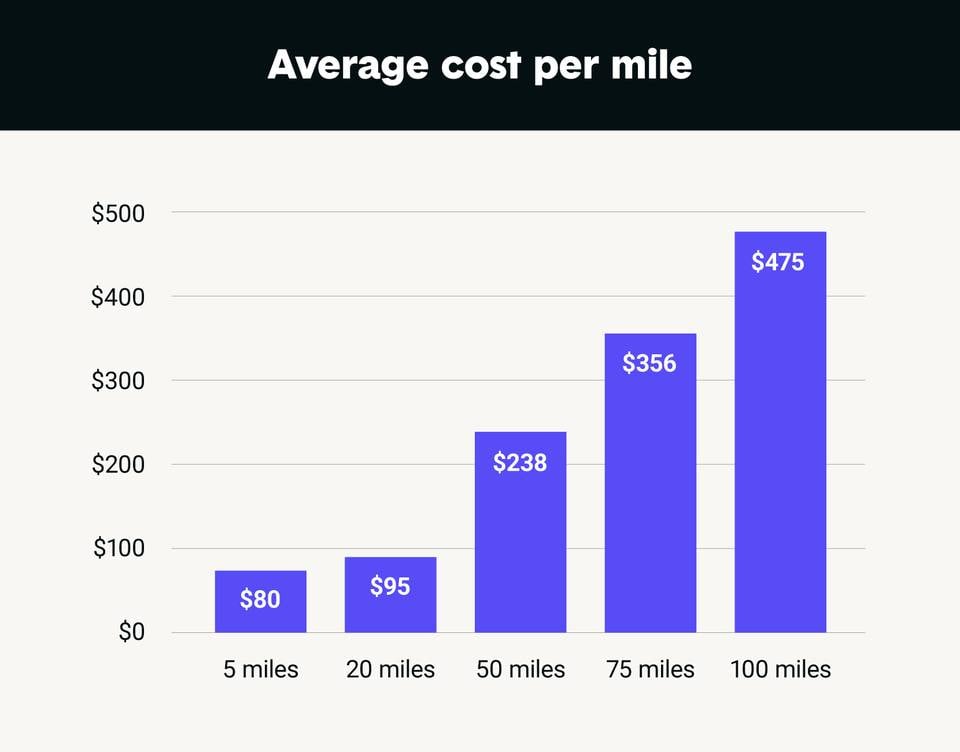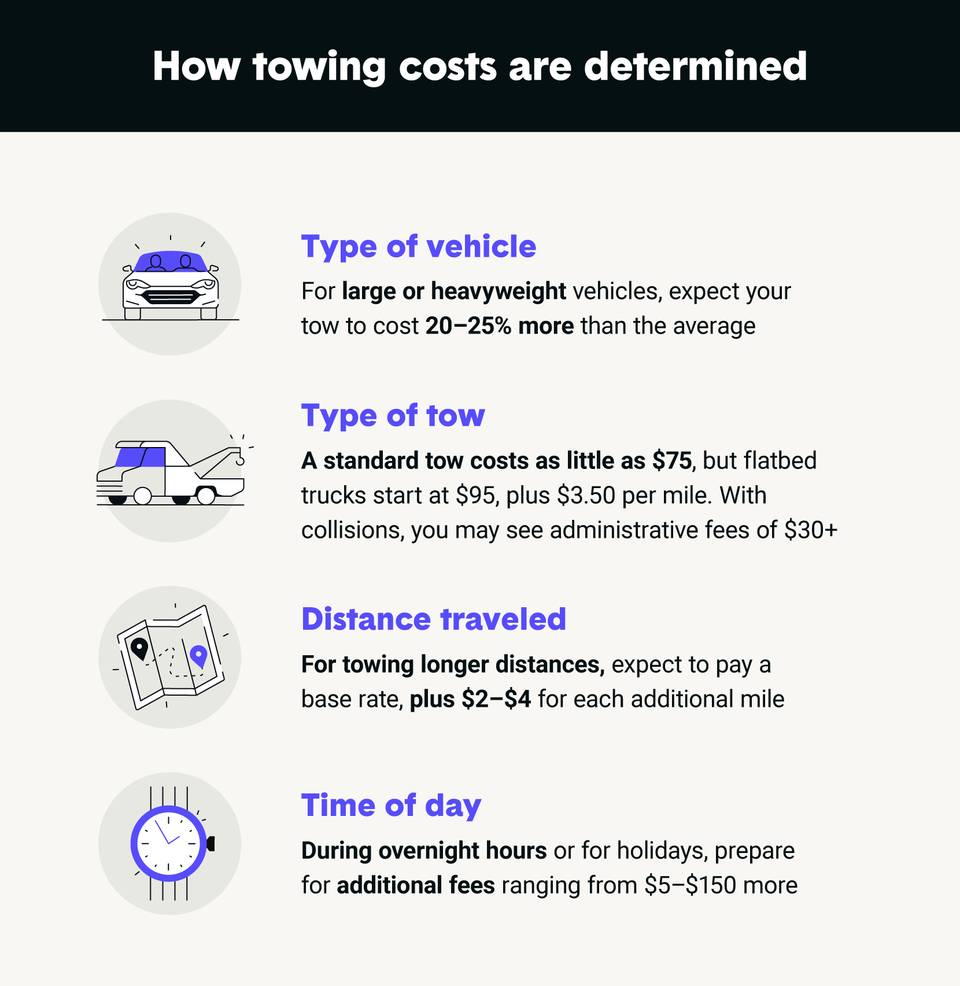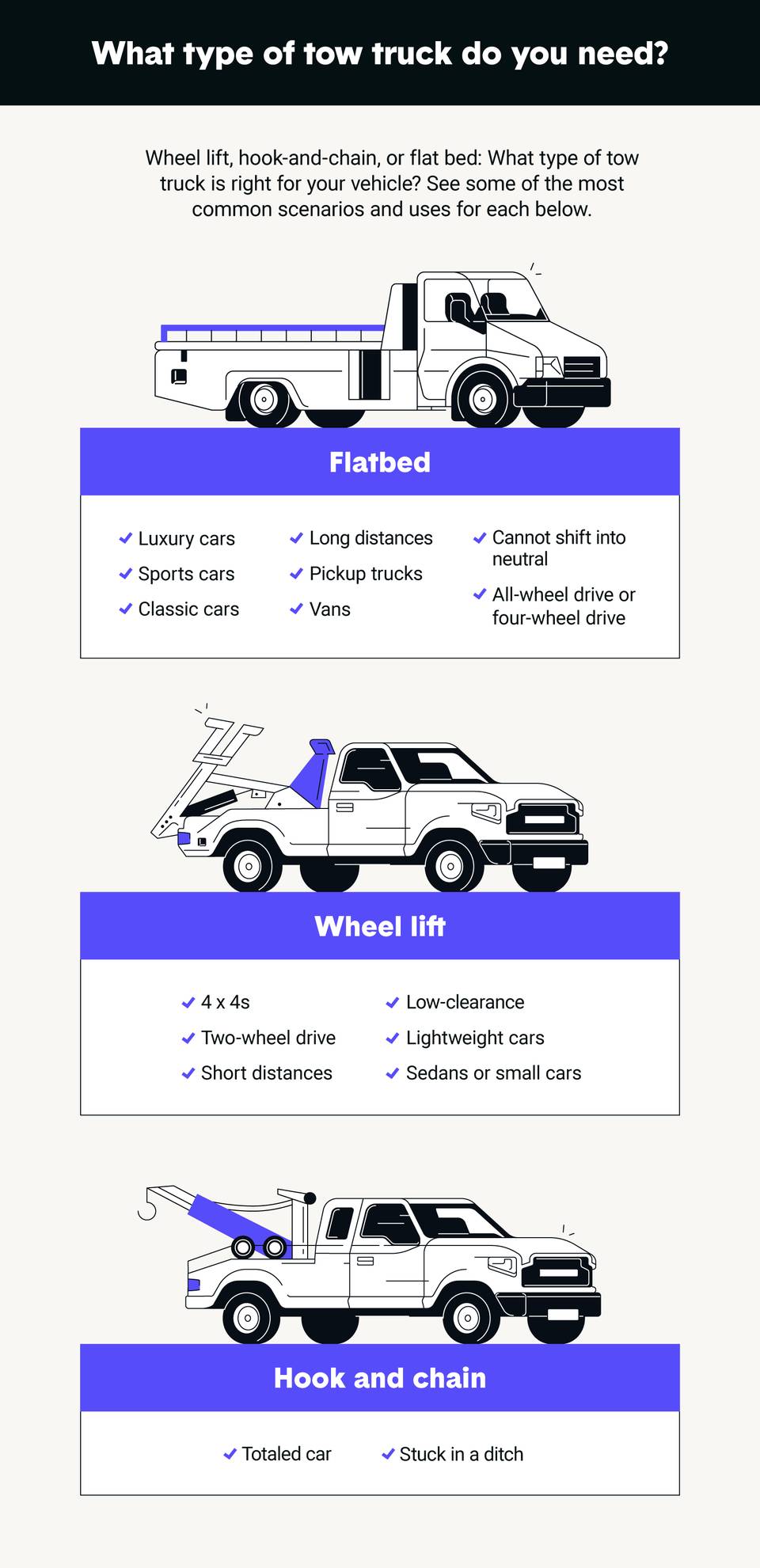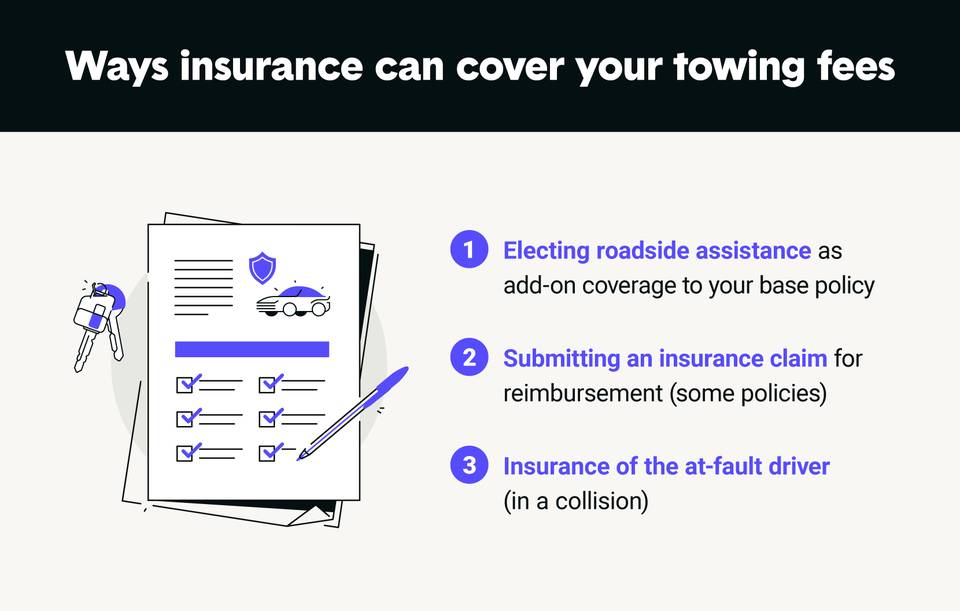Does insurance cover towing?
While regular full-coverage auto insurance typically does not cover towing, there are a few ways you can still get your insurance to cover a tow.7
Roadside assistance
Roadside assistance is a program offered by a variety of sources, from third-party organizations like AAA to major auto insurance companies. The mission of roadside assistance is to either get you back on the road heading to your destination, or to remove your disabled car from the road as quickly as possible.
Roadside assistance is typically available as an add-on service to your base coverage for a monthly or annual fee.
How much is roadside assistance?
The cost of roadside assistance will depend on your insurance carrier and how many vehicles you intend to cover, but when provided by insurance companies the service generally ranges from $14-74 annually, or from $5-$18 per policy period.
For third-party roadside assistance programs like AAA, pricing will depend on your geographic location and the level of coverage you’re looking for, but a membership typically costs $5-$10 monthly, or $60-$351 annually.
What does roadside assistance cover?
Not all roadside assistance programs offer the same services, but most programs do cover these core needs:
- Vehicle lockout
- Fuel delivery for empty tanks
- Battery jump start
- Tire change for flat and ruptured tires
- Winching services for freeing a stuck vehicle
- Towing a disabled vehicle to a repair shop
If your auto insurance plan is liability-only, and you do not have a third-party roadside assistance membership, you should expect to pay out of pocket for any towing services provided. Check with your insurance company to see how they handle towing costs and whether a roadside assistance program may be a worthwhile investment for convenience and peace of mind.
Roadside assistance vs. AAA
While AAA pricing tends to cost more than roadside assistance offered through insurance providers, the breadth of services offered is more expansive. It extends to vehicle inspection services and discounts on Carfax vehicle reports, as well as other perks unrelated to auto care, such as shopping discounts and identity theft protection.
Reimbursement through insurance claim
Some insurance companies cover towing costs through reimbursement, meaning that you pay upfront for the costs associated with your tow, and then file a claim with your company to get money back in your pocket. Keep in mind that many companies only reimburse up to $50, which is well below the average cost of a tow at $109.
At-fault driver’s insurance policy
If you were involved in an accident and do not have roadside assistance included in your coverage, the at-fault driver’s liability insurance may cover both your repairs and associated towing fees.

